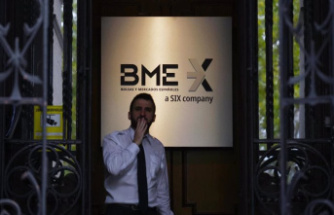The director of the Illinois Lottery was dumbfounded.
In June 2013, Michael Jones had just learned the firm hired to manage the lottery wanted to stop selling a scratch-off he considered the most popular new game in years.
It had a catchy name — Birthday Surprise — and a creative grand prize: $150,000 immediately, then the same amount on a winner's next 20 birthdays.
Jones emailed the private firm, Northstar Lottery Group, complaining it would miss lucrative summer sales: "Don't people have birthdays during the summer?"
Still, Jones didn't stop Northstar from pulling the game from the market, even though the game still had a grand prize left to award and a third of its tickets to sell.
Birthday Surprise became the first of many major scratch-offs run by Northstar that didn't award all their grand prizes — one of the red flags in instant games under Northstar that state officials missed, a Tribune investigation found.
The Tribune has reported that for the lottery's 17 biggest scratch-off games beginning in 2011 and ending in 2015 under Northstar's management, the lottery did not award more than 40 percent of the grand prizes designed into the games. Northstar pushed to dramatically increase the number of tickets it printed, allowing it to advertise bigger prizes, only to pull the games before many had been sold.
Illinois Lottery's biggest scratch-offs didn't award 40% of grand prizes, Tribune finds Joe Mahr, Matthew Walberg and Angie Leventis LourgosIt was called The Good Life and offered the biggest grand prize of any instant game the Illinois Lottery had ever produced.
Two lucky winners could scratch their way to $46 million each, paid in periodic installments. At $30, tickets weren't cheap, but millions were sold. Then the game ended before...
It was called The Good Life and offered the biggest grand prize of any instant game the Illinois Lottery had ever produced.
Two lucky winners could scratch their way to $46 million each, paid in periodic installments. At $30, tickets weren't cheap, but millions were sold. Then the game ended before...
(Joe Mahr, Matthew Walberg and Angie Leventis Lourgos)Yet state officials consistently allowed Northstar's ending of those games, the Tribune found.
For players, that meant not only that they often missed out on life-changing grand prizes in those instant games, but also that they received a lower percentage of revenue than the games were designed to pay — keeping millions of dollars from their pockets.
The Tribune investigation reviewed thousands of records, databases and correspondence between the Illinois Lottery and Northstar, and conducted dozens of interviews with industry experts and current and former lottery officials from Illinois and other states.
The Tribune found that while Illinois lottery officials paid close attention to some aspects of Northstar's management, such as how much profit the games were generating for the state, the state provided far less rigorous oversight of how the lottery's customers were being treated by Northstar.
"Our point of view was always, 'They're the experts. They know how to do this. Let them do it,'" said Jones, who was director from 2011 to 2015.
And even if he or others had pressed Northstar, he said, lottery officials were hampered by a contract that left him with few practical options for addressing disagreements.
Northstar — a partnership of two giants of the industry, International Game Technology and Scientific Games — said it had the state's blessing on how it began, ran and ended games, and it blamed any lagging performance partly on the state's meddling. It said all the games were run fairly and in the best interests of the state and players, and that odds for players to win prizes remained the same, no matter when the games ended.
How lottery scratch-off games work: A video explainerVideo explainer on how scratch-off games work and how some Illinois Lottery games didn't award all of their prizes. (Jemal R. Brinson / Chicago Tribune)
Video explainer on how scratch-off games work and how some Illinois Lottery games didn't award all of their prizes. (Jemal R. Brinson / Chicago Tribune)
See more videos"All of the characteristics of a particular instant ticket game — including the number of tickets produced and the projected prize payout percentages, were approved multiple times before a ticket ever was sold at retail," according to a statement from Northstar's majority owner, International Game Technology, known as IGT.
Former lottery officials with the Quinn administration, including Jones, said that once Northstar began falling short of profits it had projected to raise for the state, much of the state's focus turned toward finding a way out of the contract.
The Rauner administration, which took over in 2015, has long criticized Northstar's management but declined to address the Tribune's findings. Instead it pledged to continue looking for a replacement for Northstar, and then boost oversight of the new firm.
Four state lawmakers, in the meantime, have pushed for legislative hearings in response to the Tribune's findings.
A new approach
The Quinn administration's push to make Illinois the first state in the nation to privatize its lottery was presented as a model of how government could be run more efficiently.
Northstar won the contract in 2010 with a bold vision: By vastly increasing the number of instant game tickets it printed, it could advertise bigger prizes and attract more customers. That would lead to more money being returned to the state, which did occur.
Federal authorities, who had oversight because lottery ticket sales can cross state lines, mandated that states keep "actual control over all significant business decisions made by the lottery enterprise."
In states with government-managed lotteries, officials described a rigorous approach to planning their instant games.
In Massachusetts, vendors regularly pitch new games, and that lottery's executive director, Michael Sweeney, said he asks for detailed sales forecasts.
If, for example, a firm suggested a game that required printing 35 million tickets, "I don't say 'Oh, great. Where can we sign?'" Sweeney said. "I make them justify the need for that 35-million print run."
Other states' lottery officials told the Tribune that they, too, do their best to ensure that a new game will perform as expected.
But in Illinois, the only record that lottery officials critiqued Northstar's game designs came in 2010, when a state panel was vetting Northstar's bid to manage the lottery.
The state's instant ticket manager at the time, Michele Eichhorn, expressed concern about what would happen if games with more printed tickets "are not able to be sold at a high enough rate," records show.
State lawmakers call for investigation into lottery after Tribune report Joe Mahr and Matthew WalbergState lawmakers from both political parties are calling for an investigation of how the Illinois Lottery managed scratch-off games in response to a Tribune report showing the lottery didn't award many of the biggest prizes in the biggest games.
"I just don't think we should promise people things...
State lawmakers from both political parties are calling for an investigation of how the Illinois Lottery managed scratch-off games in response to a Tribune report showing the lottery didn't award many of the biggest prizes in the biggest games.
"I just don't think we should promise people things...
(Joe Mahr and Matthew Walberg)Still, Eichhorn gave Northstar an otherwise positive review. Eichhorn left the lottery after Northstar took over management, and she declined to comment for this report.
Her boss at the time, acting lottery Superintendent Jodie Winnett, said the panel's job was to review bids to see if they were generally complete, rational and legal, not whether it was likely Northstar would be able to meet its goals.
"They were responsible for executing against that plan," she said of Northstar's bid.
In the fall of 2011, Jones became the new lottery director, succeeding Winnett. He had run the lottery in the 1980s. At one point, he spearheaded a firm that considered trying to become Illinois' first private manager — he even talked with IGT about teaming up — before dropping out.
As the top state official overseeing the contract, Jones and Northstar repeatedly tangled over the best direction for the lottery.
In its investigation, the Tribune, through open records requests, examined Illinois Lottery meeting minutes, correspondence between state officials and Northstar, business plans, and performance of individual instant games and legal documents associated with Northstar's tenure, including its contract.
The records are full of testy emails from Jones in which he questioned a range of Northstar's management practices, the firm's shortfall in meeting its revenue projections for the state and what he viewed as Northstar's lack of marketing research.
Search the database of lottery games Cecilia Reyes Lower payout rates for most instant ticket games In lottery instant games, a percentage of ticket sales is returned to players in the form of prizes. That's known as the payout rate. While a game's final result is not entirely predictable, a game is designed to pay a specific rate if all tickets... Lower payout rates for most instant ticket games In lottery instant games, a percentage of ticket sales is returned to players in the form of prizes. That's known as the payout rate. While a game's final result is not entirely predictable, a game is designed to pay a specific rate if all tickets... (Cecilia Reyes)Other times, he questioned whether the advertisements fairly described the value of the grand prizes. For example, he advocated changing the fine print for "Cash for Life" games, in part because he questioned whether the lottery could legally or logistically guarantee anyone lifetime payments.
As for how many tickets were printed for games, Jones said the state assumed Northstar was printing an appropriate number of tickets so games could be expected to award all the grand prizes.
Northstar said it acted only with the state's approval. "The Illinois Lottery was aware and involved in almost all aspects of a game launch," IGT said in a response to questions.
Scientific Games added: "The Illinois Lottery made final decisions with regards to prize structure, prize payout percent and the number of tickets printed."
Ending games
Scientific Games said the industry benchmark is for games to sell through 80 to 90 percent of their tickets.
Birthday Surprise sold 64 percent of its tickets before it was ended with one of two grand prizes unawarded.
Other big-prize instant games were ended after selling 49 percent of tickets, 37 percent of tickets, 22 percent, even 15 percent. In those four games, only one of 10 available grand prizes was awarded.
Each week, the state publishes an online list showing all games and the number of big prizes each has left to award — information the state could have used to flag games pulled from shelves with unclaimed grand prizes.
Yet there is no record that any lottery employee questioned at the time why the games were being ended with grand prizes left to be claimed. And in each case, the state did not veto the ending of a game.
Players have up to a year after a game's sales have ended to claim winning tickets, at which point the lottery can determine exactly how many prizes that game awarded. There is no record that any lottery staff raised questions at that stage, either.
A Tribune investigation found the Illinois Lottery collected hundreds of millions of dollars from selling tickets to the biggest-prize instant games in which it did not hand out all of the grand prizes in some of the games.
(Illinois Lottery)Jones said that delay made it difficult to discover the practice. And even if the practice had been discovered, Jones said, a flawed contract with Northstar left state officials with few practical options for requiring changes, short of trying to dismiss Northstar.
Under the deal, any request to change Northstar's day-to-day operations allowed Northstar to make demands of its own: lowering the revenue targets for the state. By the time Jones arrived, Northstar had demanded about $250 million in lowered profit targets; it received about $20 million.
And, Jones said, by the time the lottery could have discovered the practice, he and his staff were focusing on severing ties with Northstar.
"Indeed, almost all of the Tribune's findings on the 17 examined games became evident after the lottery had already recommended, in the fall of 2013, that the Northstar contract be terminated. A termination that would make the practice moot," Jones said in a statement.
Still, Jones' predecessor, Winnett, said the lottery under state management had tracked at least one metric — payout rates for sets of similarly priced games — in an effort to ensure games generally paid out as designed.
"That was our promise to the players," she said.
Returning more
Even if the state didn't study the performance of individual games, there was another metric that could have prompted questions about Northstar's management of instant games.
In its winning bid, Northstar outlined an ambitious goal to help the state lottery compete in an increasingly crowded gambling environment.
Northstar planned to manage a portfolio of games that, collectively, gave a greater percentage of sales overall back to players in the form of prizes.
"Payout optimization is an optimal way to provide greater excitement to players while maintaining an appropriate balance of responsible gaming," Northstar said in its proposal to the state.
To achieve the goal, Northstar planned to improve Illinois' annual aggregate payout rate — at the time below 69 percent — to 73 percent by the fiscal year ending in June 2016.
It was careful to caution that the projected payout rate was only an estimate and would most likely change as market conditions change.
Northstar soon fell short.
Placing grand-prize tickets in instant games is an elaborate process Matthew Walberg, Joe Mahr and Angie Leventis LourgosThe private firms that manage and stock the Illinois Lottery with instant tickets say nobody knows where the winning tickets are.
There is no way to manipulate the games, they say, because a grand prize-winning ticket can show up anywhere, at any time.
While the firms don't know where the winning...
The private firms that manage and stock the Illinois Lottery with instant tickets say nobody knows where the winning tickets are.
There is no way to manipulate the games, they say, because a grand prize-winning ticket can show up anywhere, at any time.
While the firms don't know where the winning...
(Matthew Walberg, Joe Mahr and Angie Leventis Lourgos)While overall profits for the state did increase, the lottery under Northstar missed its payout targets for players by about 1 to 2 percentage points each year, the equivalent of $134.6 million of winnings over those five years that players could have received if it had met its projections, the Tribune found.
Northstar and its founding firms said the gap between the firm's projected overall payout in its bid and how the lottery performed is irrelevant. IGT said it was "dangerously misleading" to imply that Northstar shorted players, because the winning bid contained merely projections, not promises.
"The projected overall prize payout rate … was Northstar's expectation of the evolution of the market combined with our plans to launch new, innovative and more rewarding instant games to Illinois Lottery players," IGT said.
Still, to state Rep. Jack Franks, D-Marengo, Northstar did not meet its goals and he expressed frustration that the state did not uncover it. He compared the state's oversight role to his other job as chairman of the board of a bank.
"I would be fired by my shareholders if I acted how our lottery did," he said.
jmahr@chicagotribune.com
mwalberg@chicagotribune.com
eleventis@chicagotribune.com
Our editors found this article on this site using Google and regenerated it for our readers.













